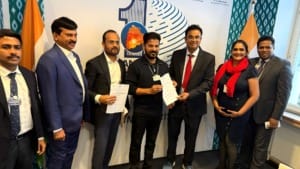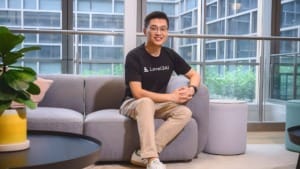tesa opens new ‘Debonding on Demand’ laboratory in Singapore to support circular innovation
tesa launches its new Debonding on Demand lab in Singapore to drive sustainable adhesive solutions for repair, recycling, and reuse.

tesa has launched a new Debonding on Demand development laboratory in Singapore to strengthen its adhesive technology capabilities in Asia and accelerate innovation for more sustainable and recyclable products. The facility will serve as a key part of the company’s global technology network and a platform for developing advanced adhesive solutions tailored for the automotive and electronics industries.
Table Of Content
The lab is being established in collaboration with Singapore’s Agency for Science, Technology and Research (A*STAR), a partnership that brings together industrial and research expertise. This move positions Singapore as a strategic hub in tesa’s roadmap for advanced manufacturing and circular economy innovation.
Supporting innovation through local partnerships
The Singapore laboratory will focus on next-generation removable adhesives that can be precisely and cleanly detached when required. These Debonding on Demand technologies aim to support product repair, recycling, and reuse—key priorities in reducing waste and extending product life cycles.
“Singapore was chosen because of its strong innovation ecosystem, proximity to leading universities, and our existing regional headquarters here,” said Dr Norman Goldberg, CEO of tesa. “At tesa, we don’t just innovate – we push boundaries. Our Debonding on Demand technologies will be a future game-changer, enabling strong, durable bonds that can be easily removed on demand. This breakthrough will transform product repair, recycling, and reuse, helping industries reduce waste and embrace circularity without compromising performance.”
tesa invests around 6% of its annual turnover in product and technology development, delivering about 100 new innovations each year. The company’s facilities in Singapore will complement its operations across Vietnam, Thailand, and India.
Circularity from the design stage
The new lab aligns with growing industry demand for repairable and recyclable solutions. According to tesa Board Member for Technology, Dr Ingrid Sebald, the technologies developed at the facility will help embed sustainability into the design and lifecycle of products.
“Our Debonding on Demand technologies will enable a completely new approach to product design. Sustainability is integrated as an essential part of applications and system solutions from the very beginning. This will create new perspectives for entire industries regarding manufacturing and life cycle management,” she said. “The Debonding on Demand lab in Singapore’s vibrant innovation ecosystem serves as the perfect launch pad to establish these breakthrough technologies for the global market and industry customers, making an important contribution to the circular economy.”
Professor Lim Keng Hui, Assistant Chief Executive of the Science & Engineering Research Council at ASTAR, added: “ASTAR is pleased to partner with tesa in developing advanced adhesive technologies that enable new possibilities in product design, sustainability, and circularity. This collaboration reflects our broader efforts to work with industry in translating research into solutions that support next-generation manufacturing.”
Developing and testing future solutions
The lab’s initial focus will be on testing and refining up to 20 new adhesive concepts based on their performance and application potential. Those that show promise will be further developed and scaled up to meet customer needs. Backed by a strong interdisciplinary team, tesa will explore innovations in polymer chemistry, adhesive formulation, and coating technologies.
Operations at the Singapore lab begin on 1 July with an initial group of engineers, technicians, and specialists. More team members are expected to join in the coming months as development work progresses.
The move underlines tesa’s long-term commitment to sustainability and its aim to lead in adhesive technologies that support a circular economy.
















